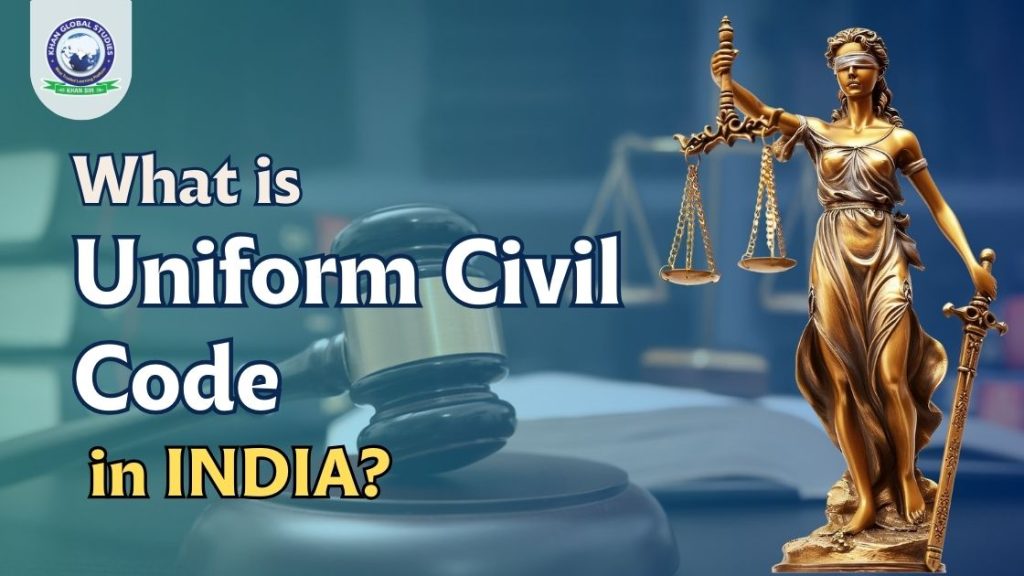After Independence, the first Jan Sangh and now the BJP have had three major agendas. The first of these was the removal of Article 370 from Jammu and Kashmir. Second, the construction of the Ram temple in Ayodhya and third, the implementation of the Uniform Civil Code in the entire country. Work on the first two agendas has been completed. Now it is the turn of the UCC. The BJP government of Uttarakhand introduced the bill related to the Uniform Civil Code on February 6 and it was passed the very next day and has now become a law.
However, the Center is also working on this. On June 14 last year, the country’s 22nd Law Commission asked various public and religious organizations stakeholders to give their opinion on the UCC within 30 days. It can be said that this issue is going to be discussed again across the country because many BJP-ruled states can implement it.
What is the Uniform Civil Code or UCC?
A Uniform Civil Code means uniform rules for every religion, caste, sect, and class throughout the country. In other words, the Uniform Civil Code means that there will be a uniform law for the entire country and uniform rules for marriage, divorce, inheritance, and adoption for all religious communities. Article 44 of the Constitution talks about applying equal laws to all citizens.
Article 44 is among the Directive Principles of the Constitution. The purpose of this article is to follow the principle of a ‘Secular Democratic Republic’ in the Preamble of the Constitution. Let us tell you that in India there is a uniform ‘Criminal Code’ for all citizens, but there is no uniform civil law.
What is Constitutional Validity?
The Uniform Civil Code comes under Article 44 of the Constitution. It states that the States shall endeavour to ensure a uniform civil code for citizens throughout India. Under this article, a demand is being made to implement a uniform civil code in the country. The logic behind this is to stop population decline and control demography.
Included in BJP’s Manifesto
This issue has been at the centre of political narrative and debate for over a century. BJP has always included this in its primary agenda. Since the formation of the government in 2014, BJP has been insisting on making UCC a law in Parliament. This issue once again gained prominence before the 2024 elections. The BJP was the first party to promise to implement the UCC if voted to power and the issue was part of its 2019 Lok Sabha Election manifesto.
Some Points of the Uniform Civil Code
– One rule for all in marriage, divorce, adoption and property.
– Equality in mutual relationships and rights among family members.
– There is no relaxation in rules based on caste, religion or tradition.
– There are no separate rules for any particular religion.
What will happen when UCC is implemented?
– Matters like marriage, divorce, property, adoption under UCC.
– Same law for marriage and divorce in every religion.
– The law which is for Hindus is also for others.
– Will not be able to marry more than once without divorce.
– Property will not be divided according to Shariat.
What will not change with the implementation of UCC?
-There is no difference of opinion on religious beliefs.
– No effect on religious customs.
– It is not that a Pandit or Maulvi will not organize the marriage.
– There is no effect on eating habits, worship, clothes etc.
In which countries of the world is UCC applicable?
The Uniform Civil Code is applicable in many countries of the world. These also include our neighbouring countries Pakistan and Bangladesh. In both these countries, a uniform law based on Sharia applies to people of all religions and sects. Apart from these, a similar civil code is also applicable in Israel, Japan, France and Russia. However, in some cases, the same civil or criminal laws also apply. European countries and America have secular laws, which are equally applicable to people of all religions. Most of the Islamic countries in the world have a uniform law based on Sharia, which applies equally to people of all religions living there.




